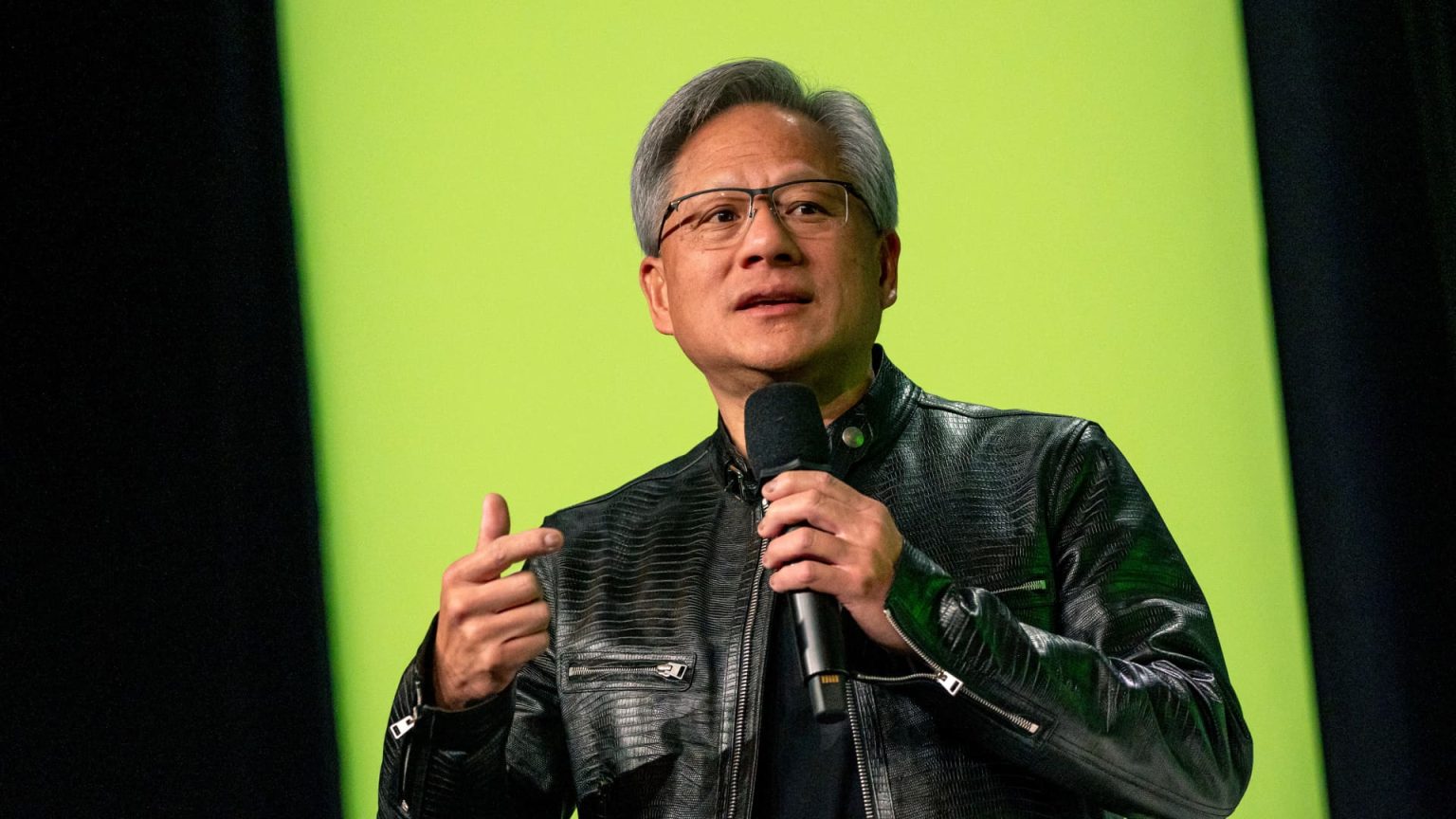Nvidia recently announced the release of its next generation AI chip architecture, named “Rubin,” at the COMPUTEX tech conference in Taipei. This new chip follows the announcement of the upcoming “Blackwell” model, which is still in production and expected to ship later in 2024. Nvidia’s CEO, Jensen Huang, stated that the company plans to release new AI chip models on a “one-year rhythm,” a significant increase from their previous two-year update timeline. This rapid pace of advancement highlights the competitive nature of the AI chip market, with major competitors like AMD and Intel working to catch up to Nvidia’s dominant position. Other tech giants like Microsoft, Google, and Amazon are also vying for a top spot in the market, while startups are looking to enter the space as well.
The Rubin chip platform will feature new GPUs, crucial for training and launching AI systems, along with a central processor called “Vera.” Details about these new features were not provided during the announcement. Nvidia’s accelerated pace of AI chip development is seen as a strategic move to maintain its leading position in the market and drive further technological advancements. Despite competition from other tech companies and startups, Nvidia continues to innovate in AI and accelerated computing to push the boundaries of what’s possible in computing.
The announcement of the Rubin chip comes just months after the March announcement of the Blackwell model, exemplifying Nvidia’s commitment to staying ahead in the fast-paced AI chip market. The company’s focus on AI and accelerated computing is aimed at driving the next wave of technological advancement and shaping the future of computing. While Nvidia’s competitors are working to close the gap, the company’s strong gross margins in the most recent fiscal quarter indicate its continued dominance in the market. With the support of major tech companies like Microsoft, Google, and Amazon, as well as interest from startups, Nvidia remains a key player in the AI chip industry.
Nvidia’s CEO, Jensen Huang, emphasized the major shift happening in computing, driven by innovations in AI and accelerated computing. The company’s goal is to push the boundaries of what is possible in technology and drive the next wave of advancements. With the introduction of the Rubin chip platform, Nvidia aims to further enhance its capabilities in AI and graphics processing, key components for powering AI systems. Despite challenges from competitors and startups, Nvidia’s commitment to innovation and rapid chip development sets the company apart in the evolving AI chip market.
In conclusion, Nvidia’s announcement of the Rubin chip platform marks a significant advancement in the company’s AI chip technology, following closely on the heels of the Blackwell model. With a focus on accelerated computing and AI, Nvidia aims to drive technological advancements and maintain its competitive edge in the rapidly evolving market. Despite challenges from competitors and startups, Nvidia’s commitment to innovation and rapid chip development positions the company as a key player in shaping the future of computing.


